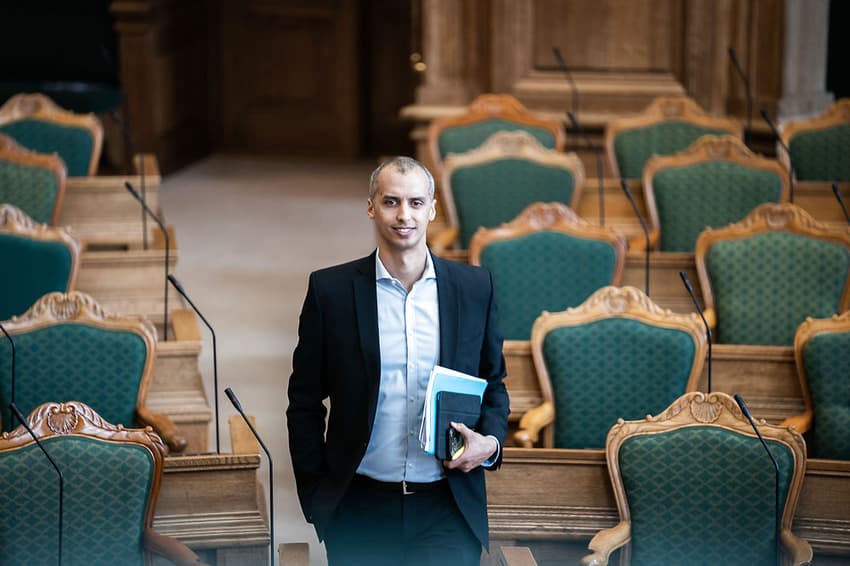Danish ministers visit Rwanda but stay quiet on agreement

Denmark’s immigration minister Mattias Tesfaye and international development minister Flemming Møller Mortensen travelled to Rwanda this week to sign an agreement with the Rwandan government. The trip was not publicised by Copenhagen, but the ministers could be seen in photos tweeted by Rwanda’s foreign ministry.
Both Tesfaye and Mortensen have so far refused to comment on the details of the agreement, according to DR.
The Danish foreign ministry has, however, confirmed that the two countries have agreed to work more closely on asylum and migration, the broadcaster writes.
This signing is part of a 4-day visit by the Danish delegation to Rwanda aimed at consolidating bilateral cooperation between the two countries. https://t.co/cH7W5IAsJxpic.twitter.com/kBn1b4t3w2
— Ministry of Foreign Affairs & Int'l Cooperation (@RwandaMFA) April 27, 2021
“This is not a case of a binding agreement, but a mutual framework for future partnership. The two governments will spend the coming period discussing concrete areas where the partnership can be strengthened,” the ministry wrote to DR.
The two Danish ministers have not given any comments to media in Denmark regarding the visit, which was scheduled to last four days, according to the ministry.
“We’re going to work together in different ways, and what’s going to happen next is to see together how we can start implementing what we have signed,” Mortensen said at a ceremony for the agreement, according to Rwandan newspaper The New Times.
The Rwandan media also writes that the agreement will “largely focus on promoting cooperation in political and migration issues”.
“This broad agreement will focus on global refugee issues, both in Rwanda and in other countries, including Denmark, and will return to other topics including investment, trade, sharing of climate change and technology,” Professor Manasseh Nshuti, Rwanda’s Minister of State in the Ministry of Foreign Affairs of the East African Community, said according to The New Times.
Although the content of the agreement is unclear, Denmark's Social Democratic government has a long-standing desire to establish a reception centre for refugees in a third country.
“The two Danish ministers refuse to speak to the Danish press. We can therefore not get confirmation that the two sides have discussed – or agreed – that Rwanda will in future accept some of Denmark’s asylum seekers,” DR’s Africa correspondent Søren Bendixen said to the broadcaster.
Rwanda in 2019 built a centre for asylum seekers stranded in Libya, but that centre has received a limited number of asylum seekers so far, DR reports based on UN data.
Comments
See Also
The trip was not publicised by Copenhagen, but the ministers could be seen in photos tweeted by Rwanda’s foreign ministry.
Both Tesfaye and Mortensen have so far refused to comment on the details of the agreement, according to DR.
The Danish foreign ministry has, however, confirmed that the two countries have agreed to work more closely on asylum and migration, the broadcaster writes.
This signing is part of a 4-day visit by the Danish delegation to Rwanda aimed at consolidating bilateral cooperation between the two countries. https://t.co/cH7W5IAsJxpic.twitter.com/kBn1b4t3w2
— Ministry of Foreign Affairs & Int'l Cooperation (@RwandaMFA) April 27, 2021
“This is not a case of a binding agreement, but a mutual framework for future partnership. The two governments will spend the coming period discussing concrete areas where the partnership can be strengthened,” the ministry wrote to DR.
The two Danish ministers have not given any comments to media in Denmark regarding the visit, which was scheduled to last four days, according to the ministry.
“We’re going to work together in different ways, and what’s going to happen next is to see together how we can start implementing what we have signed,” Mortensen said at a ceremony for the agreement, according to Rwandan newspaper The New Times.
The Rwandan media also writes that the agreement will “largely focus on promoting cooperation in political and migration issues”.
“This broad agreement will focus on global refugee issues, both in Rwanda and in other countries, including Denmark, and will return to other topics including investment, trade, sharing of climate change and technology,” Professor Manasseh Nshuti, Rwanda’s Minister of State in the Ministry of Foreign Affairs of the East African Community, said according to The New Times.
Although the content of the agreement is unclear, Denmark's Social Democratic government has a long-standing desire to establish a reception centre for refugees in a third country.
“The two Danish ministers refuse to speak to the Danish press. We can therefore not get confirmation that the two sides have discussed – or agreed – that Rwanda will in future accept some of Denmark’s asylum seekers,” DR’s Africa correspondent Søren Bendixen said to the broadcaster.
Rwanda in 2019 built a centre for asylum seekers stranded in Libya, but that centre has received a limited number of asylum seekers so far, DR reports based on UN data.
Join the conversation in our comments section below. Share your own views and experience and if you have a question or suggestion for our journalists then email us at [email protected].
Please keep comments civil, constructive and on topic – and make sure to read our terms of use before getting involved.
Please log in here to leave a comment.